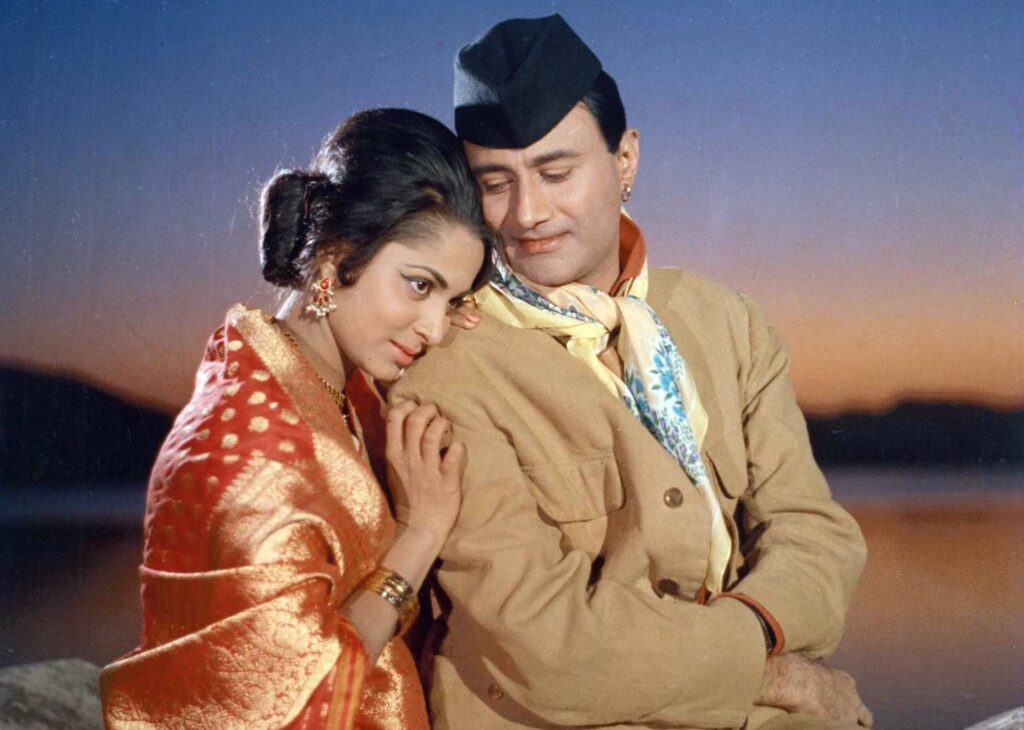Waheeda Rehman has just been conferred with Indian cinema’s highest honour, the Dadasaheb Phalke Award. The actress, known for her brilliant performances in films like Pyaasa (1957), Kaagaz Ke Phool (1959), Chaudhvin ka Chand (1960), Abhijan (1962), Guide (1965), Teesri Kasam (1966), Khamoshi (1969) and Reshma Aur Shera (1971) among others, is undoubtedly a deserving awardee in a sterling career that has spanned more than six decades.
While one celebrates for Rehman, the question really to be asked is, why has the award come so late? With due respect to some of those stalwarts who have been given the award in earlier years like Vinod Khanna, Amitabh Bachchan, Manoj Kumar, Rajinikanth and Asha Parekh, Waheeda Rehman should have been ahead of them in the queue. While the awardees ahead of Rehman are certainly luminaries in their field and would have deserved the award at some point, it has to be said that arguably Vinod Khanna, Rajinikanth and Manoj Kumar were able to jump the line due to their disposition towards the ruling party.
The National Awards have lost a lot of their lustre with their blatant right-wing slant over the last few years – the latest edition of the awards saw The Kashmir Files (2021), a film that highly polarised its viewers even leading to Islamophobic sloganeering in cinema halls, being awarded the Nargis Dutt Award for Best Film on National Integration. Films that had a left-of-centre ideology or were overly political, attacking social evils like caste like Jai Bhim (2021) or Pa. Ranjith’s Sapatta Parambarai (2021) were totally ignored by the National Awards jury headed by Ketan Mehta, no less. The last few years of the National Awards have not been too kind to Indie cinema, among the exceptions being perhaps Rima Das’ Village Rockstars (2017) and Reema Borah’s Anunaad: The Resonance (2021), both from Assam. Several mainstream performances have been lauded at the cost of some genuinely fine performances from middle-of-the-road and parallel cinema. The choice of jury members, too, the last few years has left a lot to be desired with many of those chosen due to their close affinity to the powers that be. When actor Suriya was awarded the Best Actor for Soorarai Pottru (2020), though he’s performed well, the credibility of the award – not just to him but the others that the film won – got highly diluted when it was revealed his business manager was on the jury.
While the Non-Feature category has by and large escaped this extreme politicisation, it hasn’t been entirely free of it either. Following the strike against the appointment of Gajendra Chauhan at the Film and Television Institute of India (FTII), Pune, there has been a sharp decline in the awards won by the student films of the FTII in subsequent years. This, even though they have won major laurels at several International film festivals during this period. Payal Kapadia’s student film, Afternoon Clouds (2017), screened at the Cannes Film Festival, the only Indian film chosen that year. Her feature-length documentary, A Night Of Knowing Nothing (2021), won the Best Documentary Award at Cannes. This year, Yudhajit Basu’s diploma film, Nehemich (2023), was showcased in the Short Films section of the festival. Another diploma film, Champaran Mutton, directed by Ranjan Kumar, has just been selected for the International Competition Screenings at the 22nd Short Film and Video Festival in Beijing, China. The film has also made it to the semifinals of the 50th Student Academy Awards.
It is tragic that even the Dadasaheb Phalke Award, a lifetime achievement award for the icons of the Indian film industry, has been unnecessarily politicised with the choices made especially during the last few years. But with this year’s choice of Waheeda Rehman, justice though delayed, has been done. One only hopes that other deserving personalities like actresses Vyjayanthimala, Kamini Kaushal, Mala Sinha, Helen, Sowcar Janaki, B Saroja Devi or singers P Susheela and S Janaki are soon given their due for time is running out. Kamini Kaushal is ninety-six, Vyjayanthimala turned ninety this year while Sowcar Janaki is almost ninety-two. ‘Geetashri’ Sandhya Mukherjee, the voice of Bengali cinema, sadly, passed away in 2022. Another deserving recipient overlooked was Bengali actress Suchitra Sen.
For now though, let’s salute Waheeda Rehman and of course, Guru Dutt’s vision that saw the spark in her during their meeting in Hyderabad and called her to Bombay. The rest as they (always) say is history.
Header photo courtesy Film Heritage Foundation.


